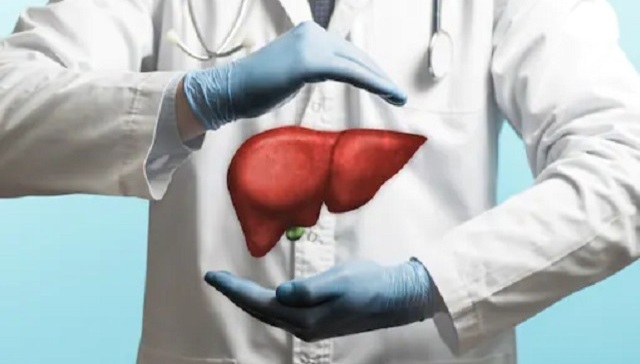Metabolic-Associated Fatty Liver Disease refers to a range of liver diseases that affect people who drink little or no alcohol. For those who drink heavily, there is a liver test for alcohol abuse, but MAFLD is caused by the accumulation of excess fat in the liver rather than alcohol. MAFLD starts as simple steatosis (fat accumulation) but can progress to MASH (Metabolic-Associated Steatohepatitis).
MASH is an advanced form of MAFLD characterized by liver inflammation and scarring (fibrosis). If not detected early, MASH can progress to cirrhosis (extensive liver scarring), which may result in liver failure or cancer.
MAFLD/MASH has no obvious physical symptoms in the early stages and often goes undetected until it progresses to the advanced stages. The diagnosis involves a biopsy, blood tests, and ultrasound. Fibronostics offers a comprehensive method for detecting and managing MASH.
Its exact causes are unknown, but certain factors are known to predispose a person to the condition. Obesity, metabolic syndrome, PCOS, and diabetes increase your risk of developing MAFLD/MASH.
Treatment of MAFLD/MASH
There’s no specific pharmacological treatment for MAFLD/MASH; it can only be managed. The available medicines are for the underlying diseases associated with MASH, like diabetes, high cholesterol, and insulin deficiency.
Studies show that lifestyle changes aimed at increasing energy expenditure, reducing energy intake, and improving the quality of nutrients consumed should be the basis of MAFLD treatment. Lifestyle changes have been shown to improve the quality of life of people living with MAFLD/MASH. Therefore, effective management of MAFLD/MASH involves a combination of medical treatment and lifestyle changes.
Lifestyle changes that reduce the risk of MASH/MAFDL
Conditions that favor the development of MASH, such as obesity, are closely linked to lifestyle choices. And specific lifestyle changes can reduce the risk of developing MAFLD/MASH. They include:
Copyright: Ketut Subiyanto on Pexels I License: CC0 Public Domain
Physical Activity and Exercise
Research associates sedentary lifestyles with MAFLD. People who engage in little physical activity are more likely to develop MAFLD than those who do. And there are higher chances of progression to MASH in inactive MAFLD patients.
MAFLD patients are encouraged to embrace a more active lifestyle. Physical activity does not necessarily mean you should sign up for gym workouts. You could start by engaging more in physical activities, such as walking, instead of driving to the grocery store and other nearby places. Walk around your neighborhood, walk your dog, play with your kids, and use the staircase instead of elevators.
These changes may look small, but they matter a lot. They help to improve your metabolism and, when done consistently, reduce the store of fat in the liver.
Your therapist can also help you develop an exercise routine. Clinical guidelines recommend incorporating at least 30 minutes of medium-intensity exercise into your daily routine.
Dietary Changes
Our diet is one of the most significant contributors to our health and well-being. MAFLD is most common in the US because of the high consumption rate of processed food and artificial sugars. Therefore, switching to a healthier diet is essential in managing MAFLD/MASH.
Low-carb diets (like the Mediterranean diet) are recommended for MAFLD. This diet consists of vegetables, whole grains, and seafood. These foods are low in saturated fat and rich in monounsaturated fat (healthy fat).
Avoid foods that contain saturated and trans fats. They make controlling cholesterol levels difficult, and high cholesterol is one of the underlying causes of MAFLD.
Another type of food you should avoid when managing MAFLD is foods with added sugar. Keeping your blood sugar low is vital in managing MAFLD, and dietary sugars like fructose and sucrose have been associated with diabetes and MAFLD/MASH.
These sugars are present in many commercially processed meals and baked goods. If you must eat store-bought food, check the ingredients list on the packaging to ensure no added sugars.
You’ll also need to be careful when taking supplements and vitamins. Excess intake of specific vitamins, such as vitamin E, can hurt the liver. Speak to your doctor to ascertain the proper dosage for your condition.
Weight Loss
Persons suffering from obesity are at higher risk of developing MAFLD/MASH. It’s been observed that losing about 5% of body weight reduces fat buildup in the liver. And at around 10% weight reduction, the symptoms of MASH, such as inflammation, fibrosis, and cirrhosis, begin to improve.
In trying to achieve weight loss, avoid extreme measures such as fasts and diets that make you lose weight abruptly. These measures are often unsustainable, and the abrupt fat reduction can harm the liver. It’s best to lose weight gradually through a healthy diet and exercise.
Avoiding Liver Irritants
Your liver becomes highly sensitive once you develop MAFLD. Avoid substances that irritate the liver, such as alcohol, over-the-counter medication, and certain vitamins and supplements. Alcohol intake further stresses the liver and accelerates the progression of the disease.
If you find it difficult to abstain from alcohol, let your doctor know. That way, they can prescribe an acceptable quantity for your condition.
Copyright: Brigitte Tohm on Pexels I License: CC0 Public Domain
Coffee
Many studies prescribe coffee intake as a means of managing MAFLD. It is said to stimulate the production of enzymes that fight inflammation in the liver. People who regularly consume coffee have been observed to suffer less liver damage.
Coffee therapy works best when taken black, without any additives. And you’ll need to take two to three cups daily to get optimal results. However, it’s best to forgo this option if you have a low caffeine tolerance.
Implement These Lifestyle Changes Today
Lifestyle and dietary changes offer the most effective results in reducing the risks of MAFLD/MASH. Regular exercise, eating a healthy diet, losing weight, and avoiding liver irritants are the best methods to curb the development of this liver condition. Your doctor or therapist can help you develop a plan that best suits your situation.
